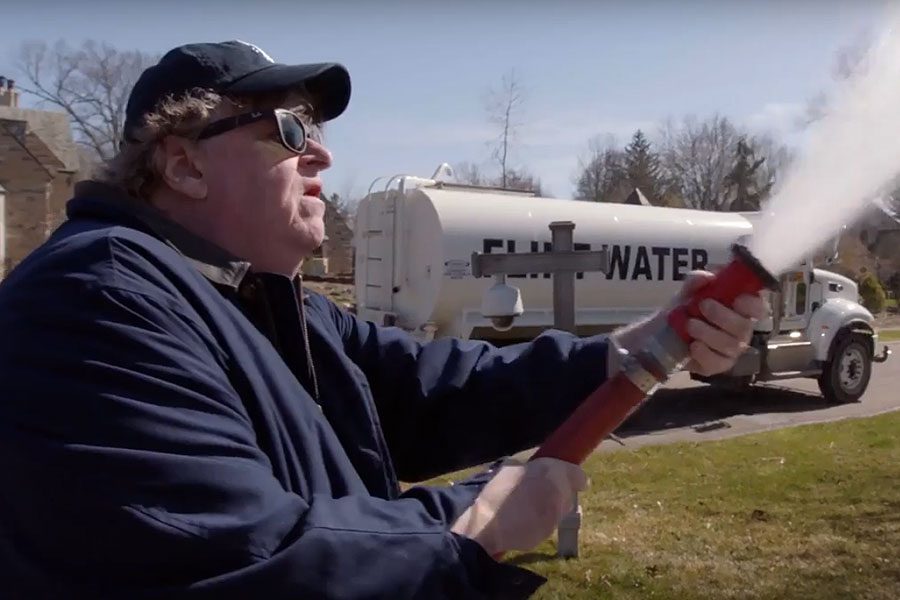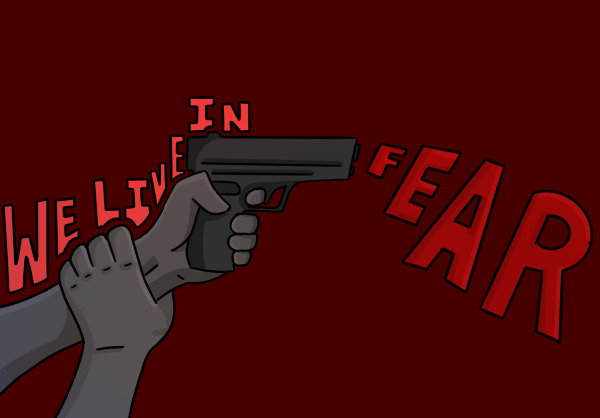Michael Moore’s take on Trump in “Fahrenheit 11/9”
On Oct. 6, Brett Kavanaugh was confirmed and sworn into the United States Supreme Court — despite facing multiple accusations of sexual assault — and I went to see Michael Moore’s new documentary, Fahrenheit 11/9, to learn just how we got here.
The movie is the sequel to Moore’s 2004 film about 9/11. Its title references November 9, 2016, the day that Donald Trump officially won the presidential election.
This movie was somewhat falsely marketed. Everything I had heard prior to seeing it described the film as both hilarious and thought-provoking. Just take a look at the official website: it seemingly advertises a comedic take on the chaos that is the Trump presidency. I went into the movie with these expectations in mind and walked out absolutely floored. I watched people leave the theater wiping tears from their eyes.
Fahrenheit 11/9 may be about Trump, but he doesn’t get as much screen time as I anticipated. There is plenty to satisfy those who want to hear more about him, including many parallels made between his time in office and Nazi Germany, which Moore hammers in pretty hard. However, the most memorable parts of the film are not the craziness of Trump’s politics and personality that we have all seen before.
Instead, Moore takes a hard look at the earlier events that allowed his campaign to gain traction in the first place and at what has happened to our country as a result, and this is what hits hard. Sure, it is comedic at times — like when he attempts to perform a citizen’s arrest of Gov. Rick Snyder and then hoses down his yard with water from Flint, MI — but it is also deeply emotional with heart-wrenching stories from Americans who have been disenfranchised by Trump and failed by politicians of both parties in our government.
In Flint, we see a story of a callous governor and a broken system that allows an entire city to be poisoned. In West Virginia, teachers and school workers are forced to strike just for a living wage. In Parkland, teenagers are told by politicians after the deaths of their classmates that the gun issue is too complex for them to understand.
Moore articulates that this is not just a problem with our new president; our traditional, establishment politicians are the real issue. Yes, this includes former president Barack Obama, whose token scene in the film was a speech in Flint during which he, completely seriously, asked for a glass of water.
So how do we get out of this mess? Moore talks to progressive candidates like Alexandria Ocasio-Cortez, Rashida Tlaib and Levi Tillemann, who are taking on the establishment that has failed to provide and protect many people in this country. He slashes politicians like Nancy Pelosi and, again, Obama, for accepting corporate money and going back on the values of their party. He shows statistic after statistic proving that America is a left-leaning country, and would act as such if only years of compromise and complacency from our elected officials hadn’t disincentivized political activism for ordinary citizens. Moore makes it clear that it is not enough to get rid of Trump; the progressive wave is what we need to solve many of the issues our country is facing.
Moore paints a picture of an America so lacking in real democracy and so full of injustice that it makes you want to simultaneously laugh and cry at the absurdity of it all. However, the movie is also a call to action, urging Americans to get up and fight back against governmental passivity and inequality. Moore has done a fantastic job of making a compassionate, relevant film that takes record of where we are, how we got here and where we need to go.









